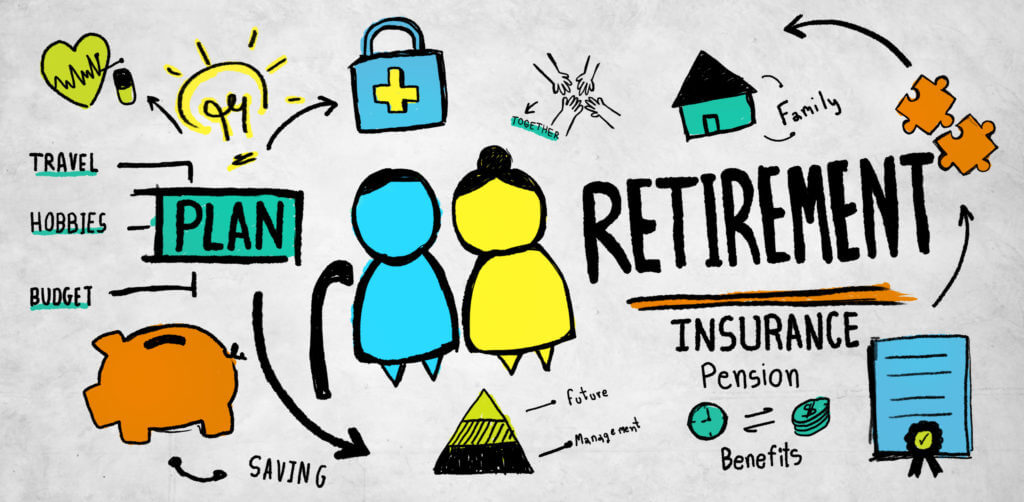Many people envision the ideal retirement. It might involve sleeping in, taking more vacations, joining new groups that are meaningful to them, volunteering or even starting their own business.
It is important to estimate how much those enjoyments will cost and if the money you have saved will be sufficient to sustain them. This will help avoid financial stress at a time when you could be enjoying yourself.
Do check out Spread trading broker Trade Nation if want to starting trading.
Health Insurance
One of the most important decisions you will make as you prepare for retirement is how you will cover healthcare costs. If you retire before age 65, your company-provided health insurance will likely stop (only 21% of large firms offer health coverage to retirees). The cost of obtaining private health insurance on the marketplace or through Medicaid is typically based on income, so the more money you have coming in, the lower your premium may be.
You should also consider creating a “bucket list” of things you want to do during retirement (travel, family, hobbies) and start saving for them. A clear understanding of retirement information and services will help keep your spending under control. It may even give you something to look forward to during your first retirement years.
Another thing to do is to create a list of your assets, including cash, real estate, personal property, bonds, stocks and investments. Once you have a complete list, compare it to a list of your liabilities, such as mortgages, auto loans, student loans and credit card debt. Paying off debt before retiring can help ensure your savings and retirement income last longer.
You can also use it to update your contact information, generate an income verification letter and make beneficiary changes.
Life Insurance
As you near retirement age, consider how your life will change. Spend the years leading up to retirement figuring out your desired lifestyle and how it will affect your expenses.
One of the biggest things to consider is where you’ll live in retirement and what that will cost. Renting a home or purchasing an RV are two popular retirement living options. Ensure you have sufficient savings to cover these costs before buying.
Another thing to consider is how you’ll cover health care expenses. While Medicare is a huge piece of the puzzle, it won’t cover everything, and there are out-of-pocket costs. You may need to buy supplemental health insurance or work part-time to keep your current coverage.
You should also review your estate plan, which details how you want to distribute your assets upon incapacitation or death. A lawyer can help you with these plans and draft a living will and trust that address your needs.
It would help to familiarize yourself with your employer’s retirement plan. Most large employers offer a defined contribution plan, including 401(k) and 403(b) plans. Smaller businesses may offer SIMPLE IRA or SEP retirement plans. You should understand fees and performance before making any investments.
Long-Term Care Insurance
Long-term care insurance pays benefits for home health services, community living support, and facility care to help you live more independently when you can no longer perform everyday tasks. It’s not an inexpensive proposition: a policy can cost several hundred thousand dollars over your lifetime.
Traditional LTC policies work like auto or homeowner’s insurance: You pay premiums for the coverage you want and make claims if needed. However, many companies stopped selling such policies because of their high rates and a history of insurers underestimating how much they would have to pay out in claims. Some states have permitted insurers to raise premiums by 40 percent or more over time on a block of policies, but they can’t do so for individual policyholders.
You can also purchase hybrid or linked-benefit policies that combine coverage for long-term care with life insurance or, less often, annuities. These are sometimes available only through your employer or through the company that provides your health insurance, says Benz.
In addition to comparing prices, look for the length of the elimination period (the amount of time you must wait before the insurance begins paying). The shorter it is, the higher your premium will be. It would help if you also asked whether the policy offers inflation protection, which increases your benefit over time to help keep pace with rising long-term care costs.
Investments
Investing in your retirement is important, but seeking professional advice to help you create and implement the right portfolio is important. A financial advisor can assess your goals, risk tolerance and other factors to provide personalized investment recommendations.
Diversify your investments. This is one of the most effective ways to manage risk, and it’s also a good idea to monitor your portfolio regularly. It’s often necessary to rebalance your portfolio to bring it back into alignment with your desired asset allocation mix. Rebalancing is an excellent way to keep your money working for you in retirement by returning it to a comfortable risk level.
Make sure you’re saving enough for retirement. The best way to do this is to start a savings account and dedicate a percentage of your income. You may also want to consider investing in a defined contribution plan, such as a solo 401(k) or SEP IRA. These plans typically offer higher contribution limits and allow you to invest in a wider variety of assets than a traditional company-administered retirement plan.
Lastly, pay off your credit card and student loan debt before you retire. Debt will be harder to manage in retirement, and it’s best to get rid of it as soon as possible.




